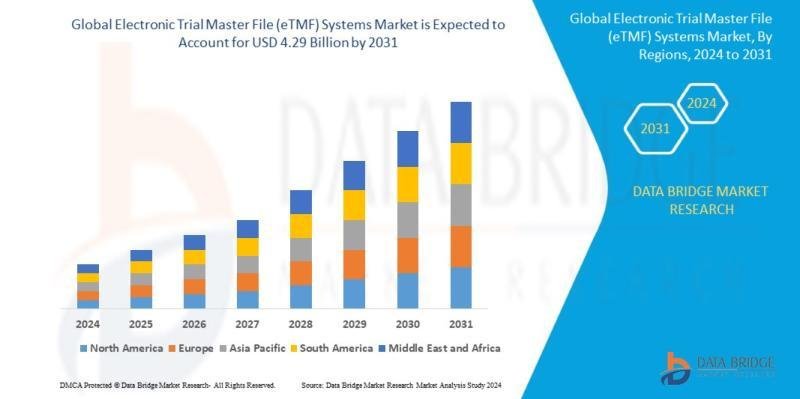Relational databases are a core technology in the world of information management. They organize data into structured tables with rows and columns, allowing for efficient data storage, retrieval, and management. Since their introduction, relational databases have been the backbone of many enterprise systems, powering applications across industries such as finance, healthcare, retail, and more. This article explores the global relational database market, providing insights into its size, share, trends, growth, demand, and the factors driving its expansion.
Introduction:
Relational databases are designed to handle large volumes of structured data, allowing for the easy querying, updating, and management of information. They are based on the relational model, where data is stored in tables and relationships are established between different data sets. Popular relational database management systems (RDBMS) include MySQL, Oracle, Microsoft SQL Server, and PostgreSQL. These systems use SQL (Structured Query Language) to manage and manipulate data efficiently.
As businesses increasingly rely on data to make decisions, relational databases have become an essential tool for storing, managing, and analyzing structured data. The relational database market includes software solutions provided by vendors as well as associated services like installation, maintenance, and optimization.
Market Size:
The global relational database market was valued at around $50 billion in 2023. It is expected to grow at a compound annual growth rate (CAGR) of about 12% over the next few years, reaching approximately $90 billion by 2028. The market’s large size is driven by the rapid adoption of data-driven technologies across industries. As organizations generate and store vast amounts of data, the demand for robust, scalable relational database solutions has increased.
The market encompasses both on-premise and cloud-based relational database solutions. While traditional on-premise databases continue to hold a significant share, the cloud-based database segment is growing rapidly due to the shift toward cloud computing and the increasing need for flexible, scalable solutions.
Market Share:
The relational database market is dominated by a few key players, with companies like Oracle, Microsoft, IBM, and Amazon Web Services (AWS) holding significant market shares. Oracle’s RDBMS solutions are widely used in large enterprises for mission-critical applications, while Microsoft’s SQL Server is popular across a wide range of industries. AWS’s cloud-based database offerings, such as Amazon RDS (Relational Database Service), have gained substantial traction, especially among businesses transitioning to cloud infrastructure.
These leading companies dominate the market due to their comprehensive product portfolios, global presence, and ability to offer integrated database solutions that include storage, security, and analytics. However, there is also significant competition from open-source relational databases like MySQL and PostgreSQL, which are popular among small and medium-sized enterprises (SMEs) and developers due to their cost-effectiveness and flexibility.
Market Trends:
Several trends are shaping the relational database market:
Cloud-Based Databases: The shift toward cloud computing is one of the most significant trends in the relational database market. As organizations move their infrastructure to the cloud, the demand for cloud-based relational databases is growing rapidly. Cloud databases offer advantages such as scalability, cost-efficiency, and ease of management, making them an attractive option for businesses of all sizes.
Automation and AI Integration: Automation is becoming increasingly important in database management. Relational databases are integrating artificial intelligence (AI) and machine learning (ML) technologies to automate tasks like query optimization, indexing, and performance tuning. This reduces the manual effort required for database administration and improves the efficiency of database operations.
Hybrid Cloud Solutions: Many organizations are adopting hybrid cloud solutions, where they use a combination of on-premise and cloud-based databases. This approach allows businesses to keep sensitive data on-premise while leveraging the scalability and flexibility of cloud databases for less critical workloads. Hybrid solutions are particularly popular in industries with stringent data privacy regulations, such as healthcare and finance.
Security and Compliance: With the growing emphasis on data privacy and security, relational database vendors are focusing on enhancing the security features of their products. Features like encryption, access control, and data masking are increasingly important as organizations seek to protect sensitive information and comply with regulations like GDPR and HIPAA.
Open-Source Databases: Open-source relational databases like MySQL, PostgreSQL, and MariaDB continue to gain popularity. These databases offer robust performance and flexibility at a lower cost than proprietary solutions, making them attractive to SMEs, startups, and developers. The open-source model allows for customization and integration with various applications, further boosting its adoption.
Market Growth:
The relational database market is experiencing significant growth, driven by several factors. One of the primary drivers is the increasing volume of data generated by businesses and consumers. As industries such as e-commerce, healthcare, and financial services continue to generate massive amounts of structured data, the need for efficient relational database solutions is growing.
The rise of cloud computing is another key factor contributing to market growth. Cloud-based relational databases offer businesses the flexibility to scale their database infrastructure based on demand, without the need for large upfront investments in hardware. This scalability is particularly important for businesses that experience fluctuating workloads, such as e-commerce platforms and social media companies.
The adoption of artificial intelligence and machine learning technologies is also driving growth. These technologies are being integrated into relational databases to improve query optimization, automate routine tasks, and enhance data analytics capabilities. AI-powered databases can analyze large datasets more efficiently, providing businesses with valuable insights for decision-making.
Additionally, the increasing focus on data security and regulatory compliance is fueling demand for relational databases with advanced security features. Organizations are seeking solutions that can help them manage sensitive data securely while complying with data protection regulations.
Market Demand:
The demand for relational databases is driven by the growing importance of data in modern business operations. As organizations across various industries collect and store vast amounts of structured data, the need for efficient, scalable, and secure database solutions has never been greater. Relational databases are critical for managing transactional data, customer information, financial records, and more.
Cloud-based relational databases are in particularly high demand due to the growing adoption of cloud services. Businesses are increasingly moving their workloads to the cloud to take advantage of the scalability, flexibility, and cost-efficiency that cloud databases offer. The demand for cloud-based relational databases is expected to continue growing as more businesses adopt cloud infrastructure.
Another factor driving demand is the need for real-time data processing and analytics. Relational databases enable businesses to manage large datasets efficiently and retrieve data quickly, making them essential for applications that require real-time decision-making, such as financial trading platforms and e-commerce websites.
The rise of mobile and web applications is also contributing to demand for relational databases. As more businesses develop mobile and web-based applications to engage with customers, they require databases that can handle high transaction volumes and provide fast, reliable access to data.
Factors Driving Growth:
Several factors are driving the growth of the relational database market:
Data Growth: The exponential growth of data generated by businesses, consumers, and devices is driving demand for relational databases. Organizations need robust database solutions to store, manage, and analyze this data efficiently.
Cloud Adoption: The shift toward cloud computing is a major driver of growth in the relational database market. Cloud-based databases offer businesses the flexibility to scale their database infrastructure based on demand, reducing the need for costly on-premise hardware.
Technological Advancements: The integration of AI, machine learning, and automation technologies is enhancing the capabilities of relational databases. These advancements allow businesses to optimize database performance, reduce manual administration, and improve data analytics.
Security and Compliance: As data privacy regulations become more stringent, organizations are seeking relational databases with advanced security features. The ability to encrypt data, control access, and ensure compliance with regulations is becoming increasingly important.
Industry-Specific Applications: Relational databases are widely used across various industries, including finance, healthcare, retail, and manufacturing. The increasing adoption of industry-specific applications that rely on structured data is driving demand for relational databases.
Conclusion:
The global relational database market is growing rapidly, driven by the increasing importance of data in business operations, the shift toward cloud computing, and technological advancements in database management. As organizations continue to generate large volumes of structured data, the demand for scalable, efficient, and secure relational database solutions will remain strong. With the integration of AI, automation, and cloud-based technologies, the relational database market is poised for continued growth in the years to come.
Browse Trending Reports:
https://chessblxs.blogspot.com/2024/10/professional-diagnostics-market-size.html
https://chessblxs.blogspot.com/2024/10/treatment-resistant-depression-market.html
https://chessblxs.blogspot.com/2024/10/robotic-prosthetics-market-size-share.html
https://chessblxs.blogspot.com/2024/10/industrial-networking-solutions-market.html
Contact Us:
Data Bridge Market Research
US: +1 614 591 3140
UK: +44 845 154 9652
APAC : +653 1251 975
Email: Corporatesales@databridgemarketresearch.com
About Data Bridge Market Research:
Data Bridge set forth itself as an unconventional
and neoteric Market research and consulting firm with
unparalleled level of resilience and integrated approaches.
We are determined to unearth the best market opportunities
and foster efficient information for your business to
thrive in the market. Data Bridge endeavors to provide
appropriate solutions to the complex business challenges
and initiates an effortless decision-making process.
This release was published on openPR.


















